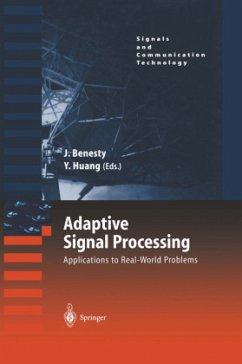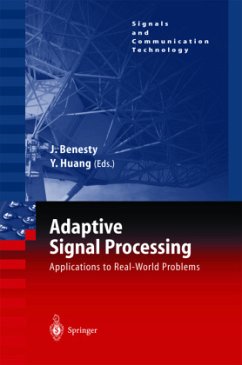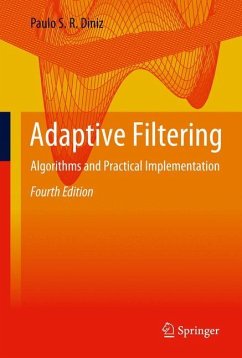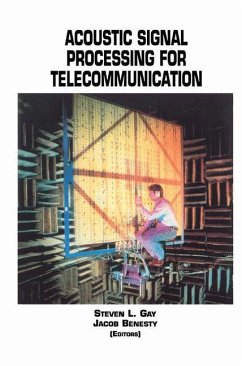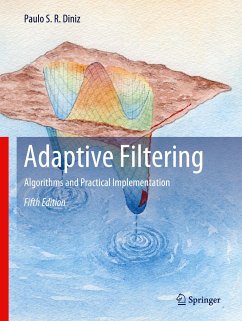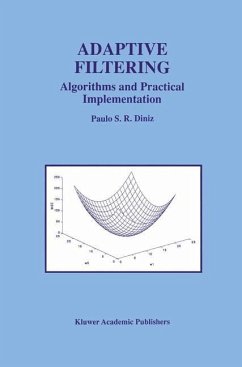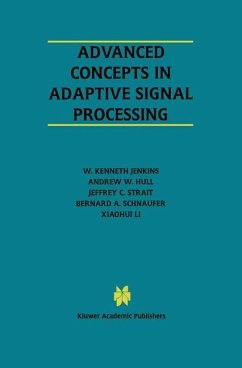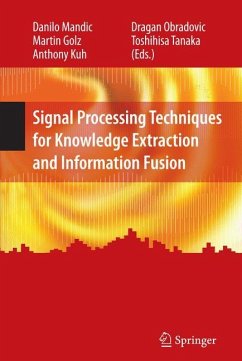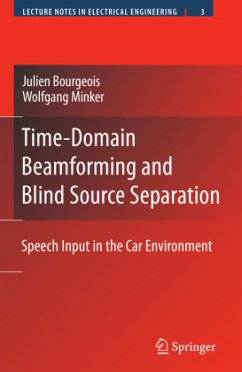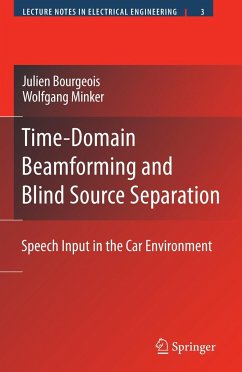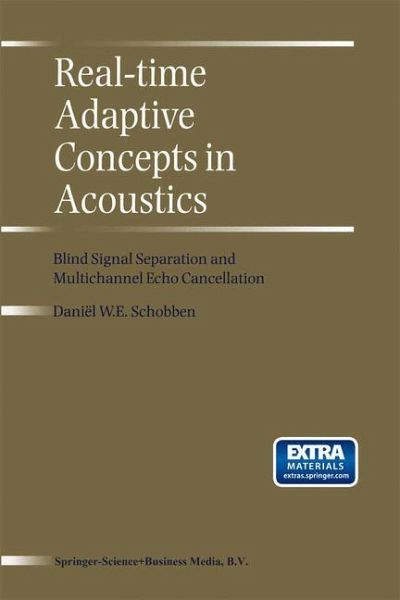
Real-Time Adaptive Concepts in Acoustics
Blind Signal Separation and Multichannel Echo Cancellation
Versandkostenfrei!
Versandfertig in 1-2 Wochen
77,99 €
inkl. MwSt.
Weitere Ausgaben:

PAYBACK Punkte
39 °P sammeln!
Blind Signal Separation (BSS) deals with recovering (filtered versions of) source signals from an observed mixture thereof. The term `blind' relates to the fact that there are no reference signals for the source signals and also that the mixing system is unknown. This book presents a new method for blind signal separation, which is developed to work on microphone signals. Acoustic Echo Cancellation (AEC) is a well-known technique to suppress the echo that a microphone picks up from a loudspeaker in the same room. Such acoustic feedback occurs for example in hands-free telephony and can lead t...
Blind Signal Separation (BSS) deals with recovering (filtered versions of) source signals from an observed mixture thereof. The term `blind' relates to the fact that there are no reference signals for the source signals and also that the mixing system is unknown. This book presents a new method for blind signal separation, which is developed to work on microphone signals.
Acoustic Echo Cancellation (AEC) is a well-known technique to suppress the echo that a microphone picks up from a loudspeaker in the same room. Such acoustic feedback occurs for example in hands-free telephony and can lead to a perceived loud tone. For an application such as a voice-controlled television, a stereo AEC is required to suppress the contribution of the stereo loudspeaker setup. A generalized AEC is presented that is suited for multi-channel operation.
New algorithms for Blind Signal Separation and multi-channel Acoustic Echo Cancellation are presented. A background is given in array signal processing methods, adaptive filter theory, and fast filtering in the frequency domain.
The included CD-ROM can be played using any compact disc player to play the simulation results that are described in the text. When inserted into a computer, it furthermore gives Matlab implementations of the new algorithms along with audio data with which to experiment. This makes the book suited to researchers, engineers, and university students, who want to get acquainted with these emerging fields.
Acoustic Echo Cancellation (AEC) is a well-known technique to suppress the echo that a microphone picks up from a loudspeaker in the same room. Such acoustic feedback occurs for example in hands-free telephony and can lead to a perceived loud tone. For an application such as a voice-controlled television, a stereo AEC is required to suppress the contribution of the stereo loudspeaker setup. A generalized AEC is presented that is suited for multi-channel operation.
New algorithms for Blind Signal Separation and multi-channel Acoustic Echo Cancellation are presented. A background is given in array signal processing methods, adaptive filter theory, and fast filtering in the frequency domain.
The included CD-ROM can be played using any compact disc player to play the simulation results that are described in the text. When inserted into a computer, it furthermore gives Matlab implementations of the new algorithms along with audio data with which to experiment. This makes the book suited to researchers, engineers, and university students, who want to get acquainted with these emerging fields.



